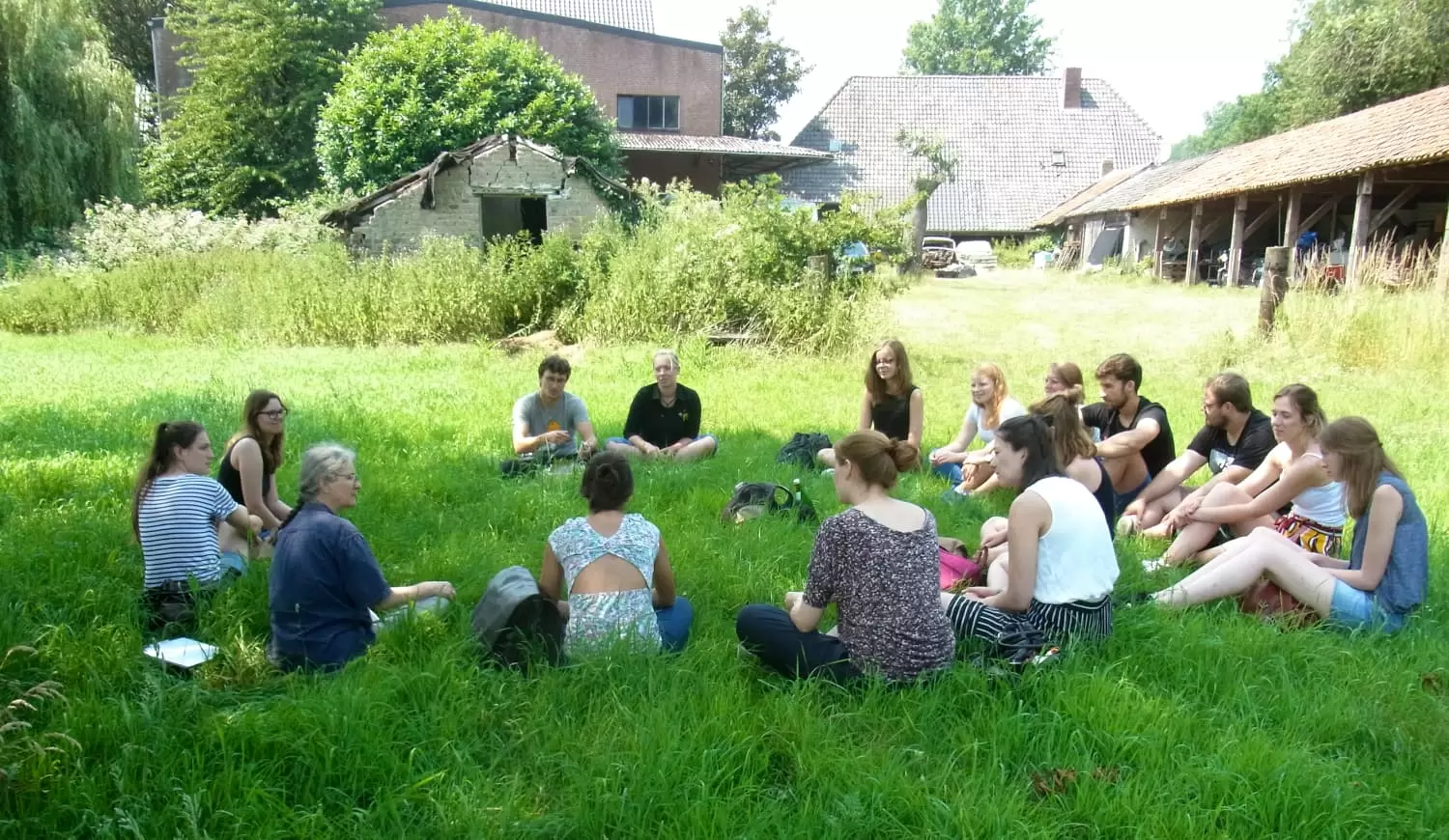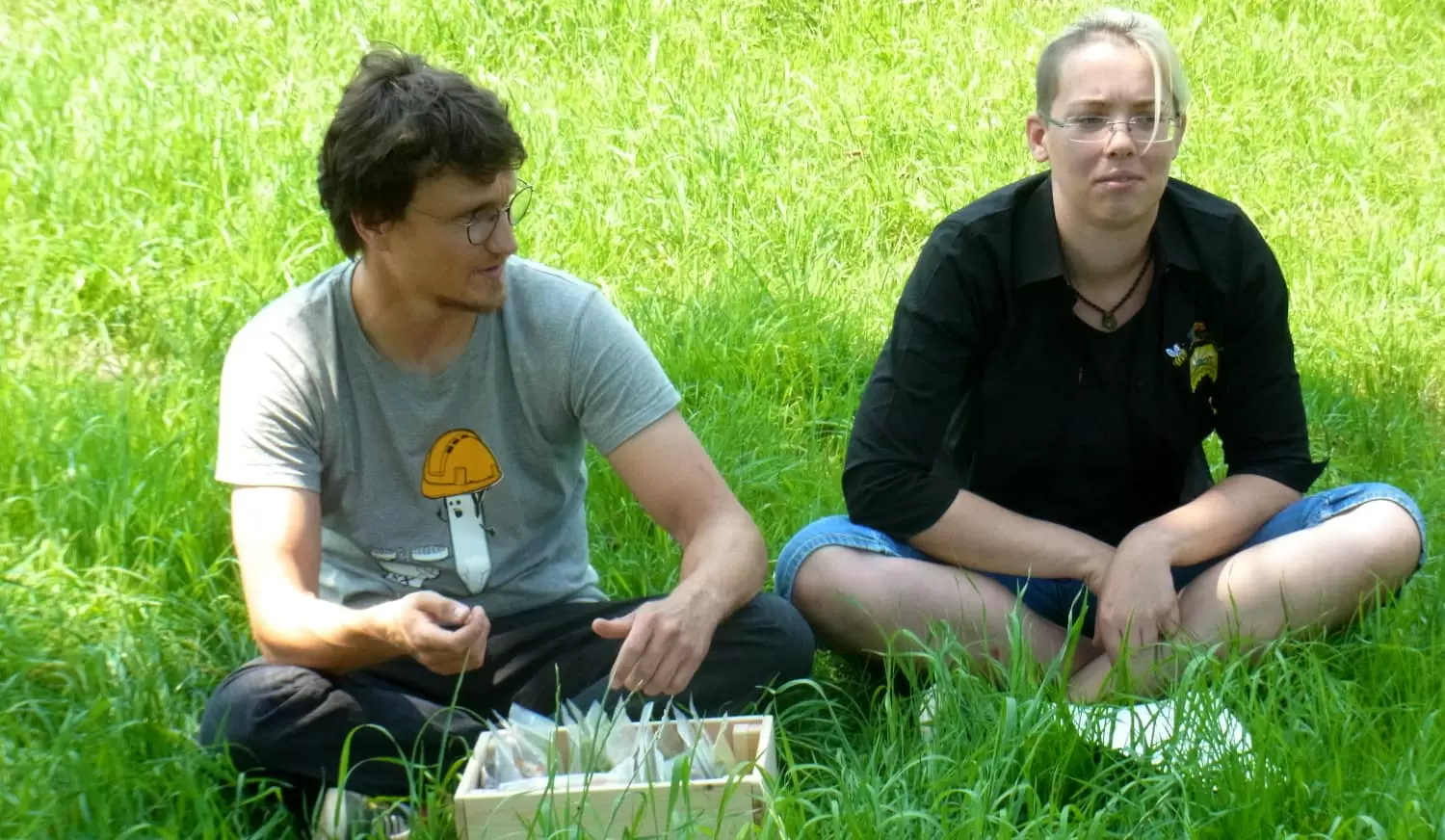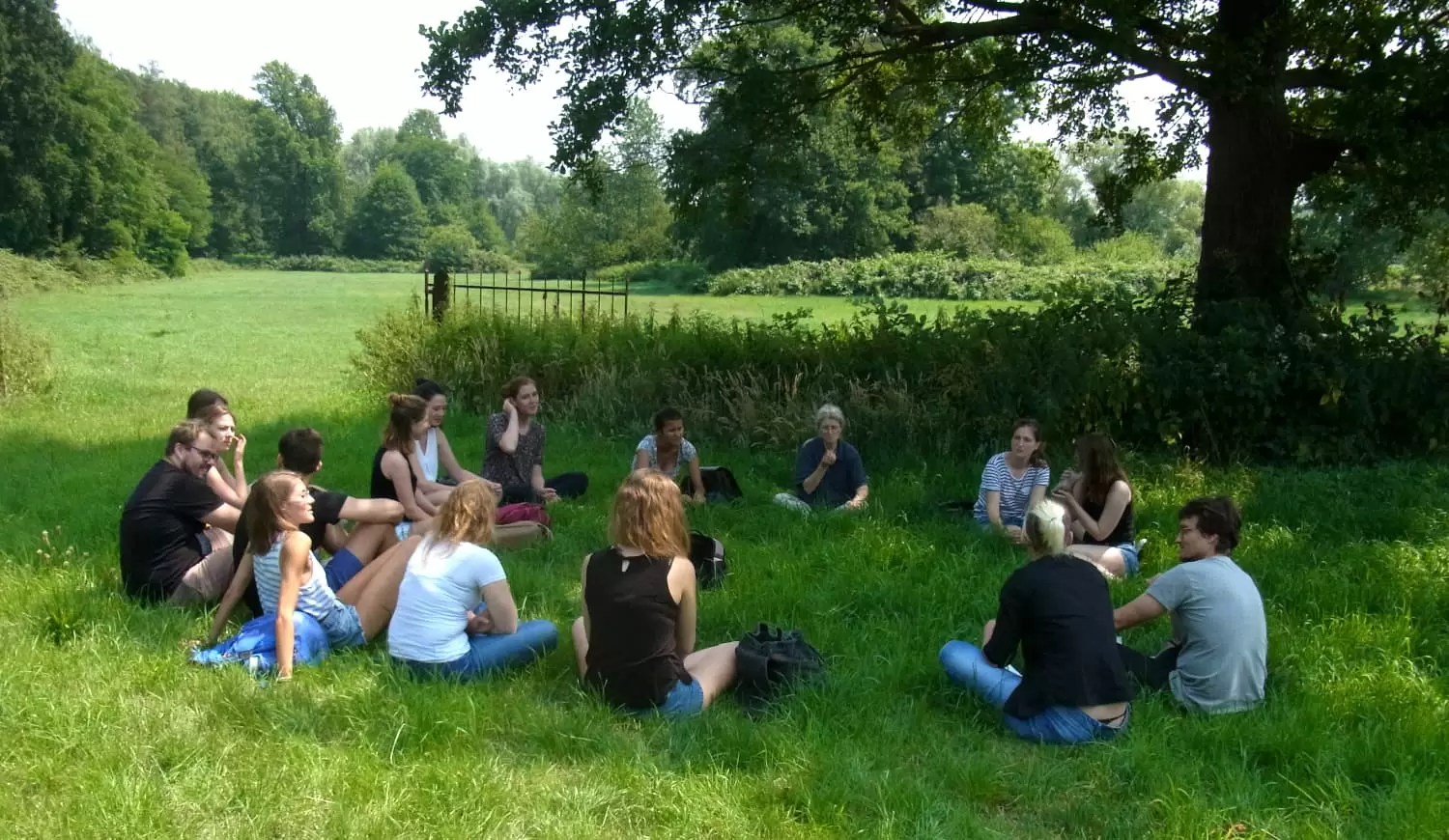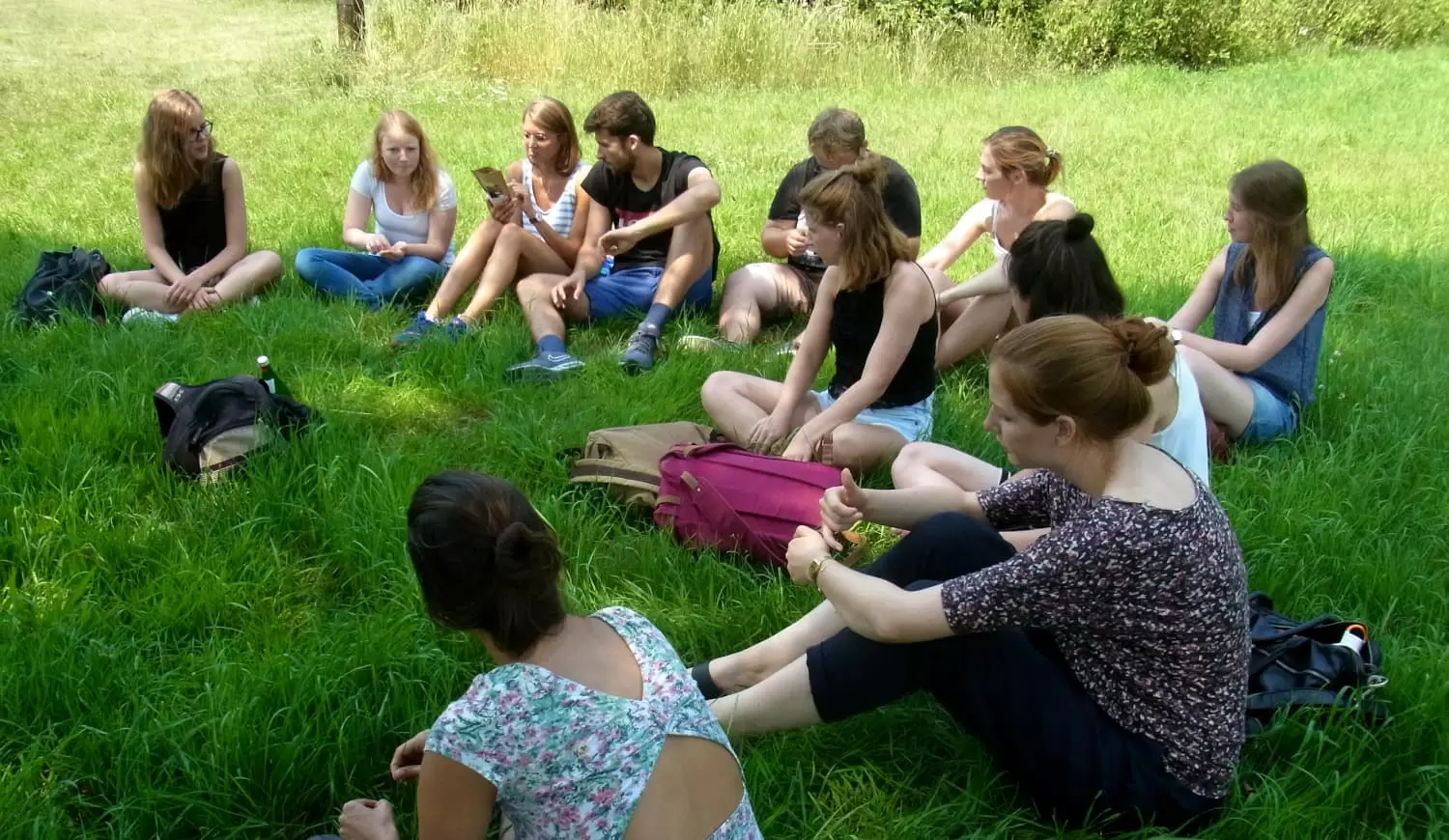The Rhine-Waal University of Applied Sciences visits the Aspermühle 2019
With its "Life Science" faculty, the Rhine-Waal University of Applied Sciences in Kleve covers many areas thematically, which also play a major role in the food industry. Examples include organic farming, food analysis and hygiene, but also healthy nutrition and environmental protection.
Therefore, we found it very appropriate when Dr. Kehlenbeck, lecturer at the university, approached us with the request that she and her students of the Master's course in food science would like to come and visit us in Aspermühle so that the students could learn more about food analysis, food hygiene and food development.

Fortunately, the day was warm and sunny, so that we were able to hold most of the discussions in a relaxed atmosphere outside, which was well received by the students and was seen as a welcome change to the other company visits.

Mrs. Theunissen and Mr. Mühling explained on the basis of product samples and food analyses what a food company has to pay attention to in quality control. Many factors play a role here. On the one hand, of course, the distinction between organically or conventionally grown food, because this often results in different limit values for harmful substances, labelling obligations or storage requirements.
As a rule, it is irrelevant for the hygienic requirements whether the product is organic or conventional, because both product groups are treated equally analytically, because the basic aim here is to exclude contamination, e.g. with pathogenic germs.
Depending on the product, the food analysis includes different focal points and contaminants. While in the case of bee products, especially honey and flower pollen, special attention must be paid to pyrrolizidine alkaloids, pesticides and bee medicines, in the case of extract products, such as barley grass juice powder, heavy metals often play a more important role. A microbiological examination is recommended for all dried products, because especially Salmonellae, moulds or Enterobacteriaceae can be dangerous for humans. A complete monitoring is therefore obligatory.

We are already looking forward to further visits.
